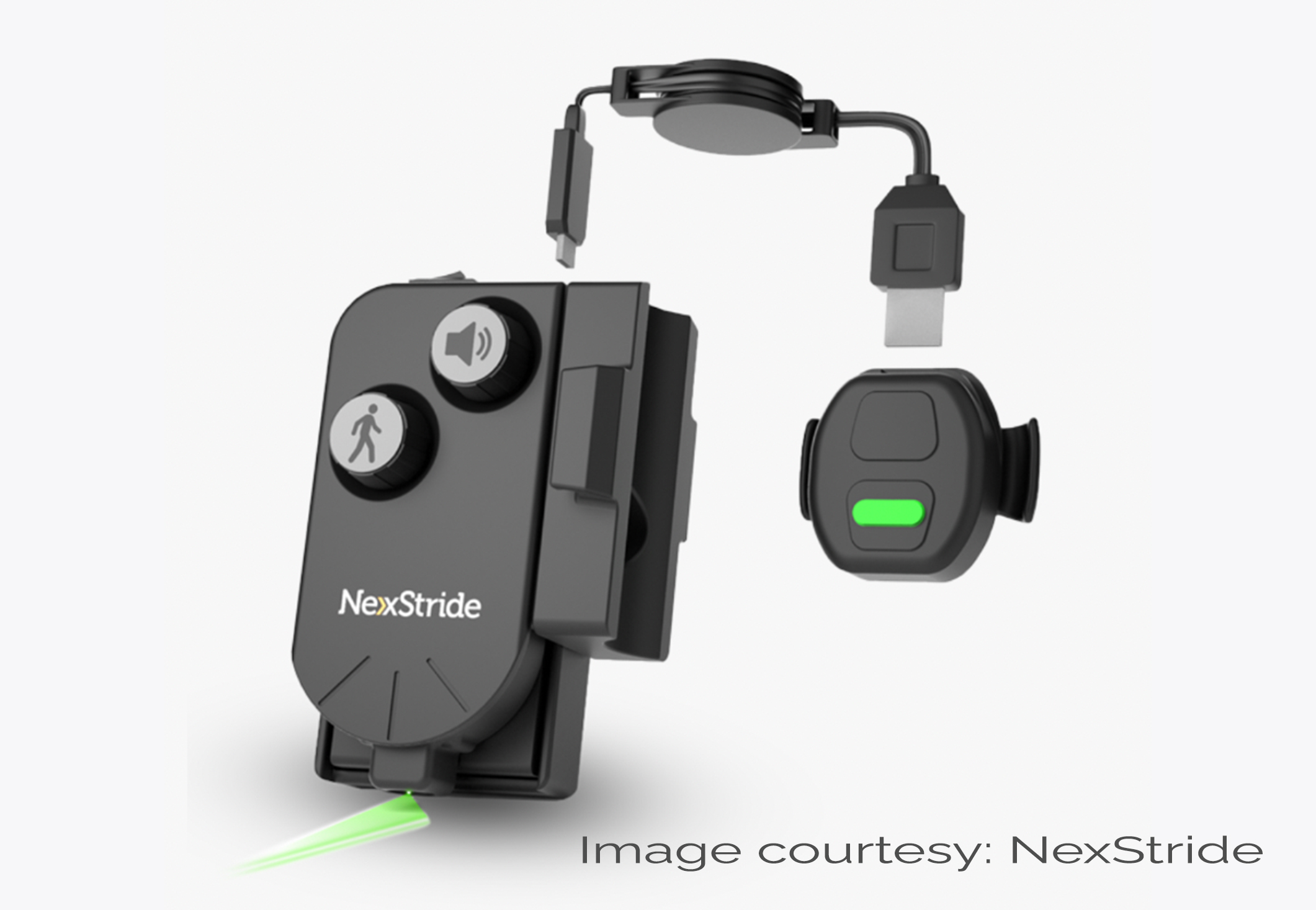Maintaining mobility is important to allow older adults to live independently, preserve physical function, and help boost self-confidence while minimizing anxiety and depressive symptoms. People with Parkinson’s disease often struggle with mobility as the disease progresses and more frequent gait freezing episodes can be frustrating and often contributes to falls. But new technology is helping people with Parkinson’s freezing walk with more confidence and participate in daily activities with greater ease.
NexStride is a compact device that attaches to canes, walkers, or walking poles and gives visual and auditory cues to help people with Parkinson’s overcome gait freezing. According to the NexStride website, the adjustable device helps re-establish communication pathways between the body and the brain during a freezing episode.
Freezing of Gait (FoG) can be a debilitating symptom of Parkinson’s disease and is a leading cause of falls and hospitalizations among patients with Parkinson’s. When medication or surgery is not able to successfully treat FoG, recent research has found that sensory and auditory cueing may help restore mobility and increase confidence and independence in Parkinson’s patients. Cueing uses physical stimuli to help the brain process information and allow movement.
Studies have found that cueing can help improve gait, walking speed, step length, and the number of steps per minute while reducing the frequency and number of freezing episodes. Cueing may help to circumvent the perceptual deficiencies caused by the progression of Parkinson’s, initiating movement and improving posture.
The NexStride device uses a metronome with an adjustable pace and volume control in combination with a multidirectional green laser cue. The cues can be turned on when needed and the small device is discreet and lightweight.
Learn more about how cues work to overcome freezing episodes and other strategies to unlock FoG by following this link to The American Parkinson Disease Association website.






Add Your Voice
0 Comments
Join the Discussion